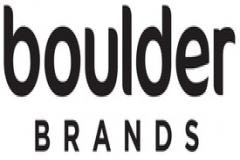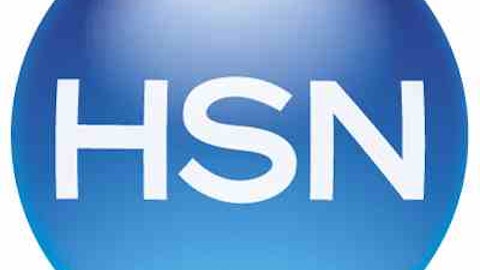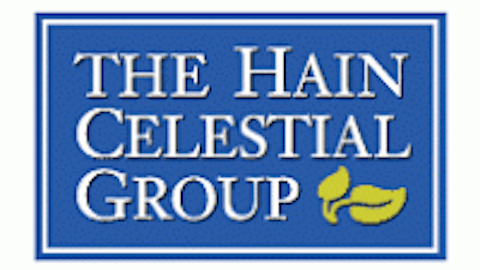While most of us choose to eat what we like and not necessarily what is good for our health, certain groups of people are less fortunate.
New regulation to deter ‘me-too’ competitors
In August 2013, the U.S. Food and Drug Administration (FDA) came out with a new regulation, providing a standard definition for the term “gluten-free” for voluntary food labeling: The food must contain less than 20 parts per million of gluten. This will go into effect by August 2014.
Prior to the introduction of this regulation, any food manufacturer could label its products as ‘gluten-free’ without meeting any criteria on gluten concentration. Consumers were not able to separate the real McCoy from the pretenders. With its Glutino and Udi’s products containing less than 10 parts per million of gluten, well below the FDA guidelines, Boulder Brands Inc (NASDAQ:BDBD) should be able to leverage its brand equity to seize more market share.
High margins sustainable
Boulder Brands Inc (NASDAQ:BDBD) delivered high gross margins of 43% for fiscal 2012. In my opinion, the relatively low price sensitivity of Boulder’s customers is the key to this. A study by Dalhousie Medical School also showed that gluten-free products are about 242% more expensive than their gluten-containing counterparts.
First, one in 133 Americans suffer from celiac disease, a genetically linked disease triggered by the consumption of gluten, according to a study conducted by The Center for Celiac Research. They have no alternative to managing the disease, apart from maintaining a gluten-free diet.
Second, the cost of gluten-free products is relatively insignificant compared to the medical bills associated with not sticking to a gluten-free diet. Patients who suffer from celiac disease and remain untreated could potentially suffer from complications such as osteoporosis, infertility and even a higher risk of intestinal lymphoma and small bowel cancer.
Relative market share advantage
With its gluten-free brands Glutino and Udi’s having a 31.3% market share of the North American gluten-free market, Boulder Brands Inc (NASDAQ:BDBD)’s market share is more than seven times that of its closest dedicated gluten-free competitor. This high relative market share leads to significant cost advantages as a result of economies of scale. Boulder is also able to invest more in marketing and research & development to stay further ahead of its competitors by spreading these fixed costs over greater sales volumes.
Looking ahead
Boulder Brands Inc (NASDAQ:BDBD) grew revenues and organic EBITDA by 46% and 20% year on year respectively in the second quarter of fiscal 2013. In view of this good set of results, it raised the lower end of its full year fiscal 2013 revenue guidance from $450 million to $455 million, implying a 23% increase in the top line year on year.
Boulder is expected to make its international foray in the fourth quarter of 2013 with the introduction of 18 Udi’s products via an unnamed major U.K. retailer. This follows from the acquisition of Davies Bakery, a UK-based gluten-free bakery in May 2013.
In terms of new distribution channels, food service offers the most compelling opportunities for Boulder Brands Inc (NASDAQ:BDBD) As consumers become aware of the concept of gluten-free, more restaurants will be inclined to include gluten-free choices as part of their menus.
Peer comparison
Boulder’s peers include The Hain Celestial Group, Inc. (NASDAQ:HAIN) and Vitamin Shoppe Inc (NYSE:VSI).
The Hain Celestial Group, Inc. (NASDAQ:HAIN) is a leading organic and natural foods products company with operations in the U.S. and Europe. It delivered record financial results for fiscal 2013, with net sales of $1.7 billion and diluted earnings per share of $2.41, representing growth rates of 26% and 39% respectively. This was achieved on the back of balanced growth across its multiple brands and channels. Hain guided for diluted earnings per share to increase by 16%-20% for fiscal 2014.
Despite the good results, I believe that customer demand for Boulder’s gluten-free products should be more sticky than most of The Hain Celestial Group, Inc. (NASDAQ:HAIN)’s organic and natural foods products. This is because the gluten-free diet is largely driven by medical needs, while the perceived health benefits of general organic products might not appeal to everyone. Although The Hain Celestial Group, Inc. (NASDAQ:HAIN) has its own line of gluten-free products, it is more of a proxy for organic and natural foods products, rather than specifically gluten-free products. According to Euromonitor 2012 market share data, The Hain Celestial Group, Inc. (NASDAQ:HAIN)’s gluten free pasta brand, DeBoles only has a 1.4% share of the North American gluten-free market.
The health & wellness market is not limited to natural, organic, and gluten-free food products. Vitamin Shoppe Inc (NYSE:VSI) has carved out its niche in sports nutrition and specialty supplements as a specialty retailer. In the second quarter of fiscal 2013, Vitamin Shoppe Inc (NYSE:VSI) registered positive comparable store sales for the 31st consecutive quarter and it is targeting a low to mid single-digit comparable store sales growth for the full year.
New stores sales growth will also be another key driver. As of August 2013, it opened 23 new stores and should be on track to meet its full-year target of 50 stores. Vitamin Shoppe Inc (NYSE:VSI) believes that its strategy of locating stores in high traffic stand-alone locations instead of shopping malls gives it more visibility than stores in malls.
Conclusion
Boulder enjoys industry-leading gross margins as a result of its relative market share advantage and low customer price sensitivity. Despite this, Boulder is now priced to perfection. I would advise waiting on the sidelines for a better entry price.
The article The Right Diet Can Be a Matter of Life and Death originally appeared on Fool.com and is written by Mark Lin.
Mark Lin has no position in any stocks mentioned. The Motley Fool recommends Hain Celestial. The Motley Fool owns shares of Hain Celestial.
Copyright © 1995 – 2013 The Motley Fool, LLC. All rights reserved. The Motley Fool has a disclosure policy.






